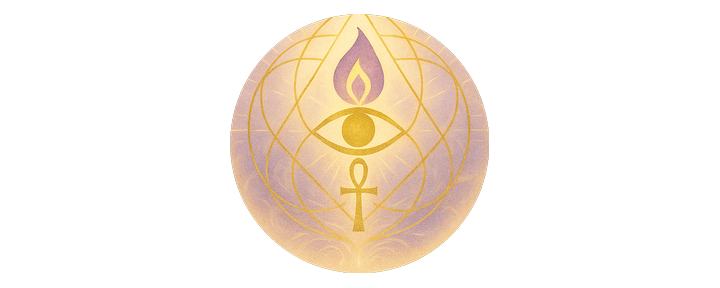
This past year has drawn me into a deeper understanding of both dementia and soul healing. Caring for my father has shown me how memory, light, and presence weave together and what happens when parts of the self drift, only to be lovingly called home again.
This past year has brought a calling: caring for my elderly father. I recently placed him in a seniors’ home in Victoria, B.C., and I travel there often by ferry. Don’t feel sorry for me, I love those island visits. The rhythm of the sea and island life reminds me of my roots, while life here in Edmonds, WA near my soon-to-arrive grandchild reminds me of the future blooming close to home.
Witnessing the Light in Others
There’s something quietly profound about spending time with the residents at the Home. I’ve found myself learning their names, sharing meals, and even playing bingo. It’s a different rhythm from my energetic healing work yet deeply connected.
As I sit with people who live with dementia, I notice the subtle energetic shifts. In their eyes, there’s sometimes a vacancy. A sense of absence, of something not quite anchored. Conversations loop, and behind the repetition, I can feel what’s unresolved: the unprocessed emotions and forgotten parts of the self.
From an energetic perspective, I see this as soul loss, when parts of us leave during times of trauma, fear, or overwhelm. The irony is that the pieces that flee are often the most sensitive, luminous aspects of our being. The parts that hold light.
The Art of Soul Retrieval
In my healing work, soul retrieval is the gentle art of calling those pieces home. When they return, something exquisite happens: a renewal of joy, wholeness, and life force. Sometimes it feels like reuniting with an old friend; other times, like discovering a part of yourself you never fully knew but always recognized.
Each return brings more sparkle into life.
And from what I witness in the Home, we all need as much sparkle as we can gather.
The other night, over dinner, one man said quietly, “All I have is the past.” Across the table, another smiled, took his companion’s hand, and said, “The future is exciting.”
Spirit was shining through his eyes.
Science Meets Spirit
While my own experience perceives dementia as a kind of soul loss, a fragmentation of light, presence, and self; modern research is beginning to echo this understanding in its own language. Neuroscientists and psychologists describe dementia as a “loss of self,” a disruption of identity, embodiment, and higher-order consciousness. These studies explore how the mind, body, and sense of personhood become separated when neural pathways break down and, remarkably, how music, movement, and presence can help restore coherence.
In this way, science and spirit meet: what I see as retrieving the lost pieces of the soul, research describes as reintegrating the self.
When Forgetfulness Becomes a Call Home
If you ever sense forgetfulness or disconnection beginning in yourself, consider it a quiet invitation to return inward and not a reason for fear.
The practices of meditation and Sacred Vision Healing are powerful ways to stay present within your own field: to strengthen awareness, call your light home with this soul retrieval, and keep the pathways of the self alive and luminous.
Whether or not memory shifts are part of your experience, this inner work nourishes vitality and coherence at every level of being.
Invitation
If you feel called to rekindle your own inner spark, I invite you to begin where light and healing meet.
Join me for Third Eye Meditation Tuesday evenings at 6 p.m. PST or explore Sacred Vision Healing to journey more deeply into the art of soul retrieval and restoration.
The third eye, home to the pituitary gland, is a gateway of intuition and coherence. When presenced through meditation and energy work, it harmonizes the body’s rhythms and restores the subtle architecture of the self inviting home the luminous parts of our being that may have drifted away.
✨ Step into stillness. Breathe in your light. And remember the wholeness that was never truly lost.
With love,
Elle Kerr-Wilson
Further Reading where Science Meets Spirit
Bomilcar, I. (2021). The seven selves of dementia. Frontiers in Psychiatry, 12, 646050. https://doi.org/10.3389/fpsyt.2021.646050 Identifies seven fundamental self-processes affected by dementia.
Brancatisano, O., et al. (2019). A “Music, Mind and Movement” program for people with dementia. Frontiers in Psychology, 10, 1435. https://doi.org/10.3389/fpsyg.2019.01435 Music and movement interventions improve cognition and self-expression.
Dowlen, R. (2022). In the moment with music: An exploration of the embodied and sensory experiences of people living with dementia during improvised music-making. Ageing & Society, 42(5), 1039-1060. https://doi.org/10.1017/S0144686X21000957 Shows how music rekindles connection and identity.
Karkou, V., Aithal, S., Zubala, A., & Meekums, B. (2017). Dance movement therapy for dementia. Cochrane Database of Systematic Reviews. https://pmc.ncbi.nlm.nih.gov/articles/PMC6464250 Embodied therapy restores presence and wellbeing.
Mentzou, A. (2023). Change in the psychological self in people living with dementia: A scoping review. Clinical Psychology Review, 102, 102086. https://doi.org/10.1016/j.cpr.2023.102086 Explores transformations in the psychological self.
National Center for Biotechnology Information (NCBI). (2019). Sense of self among persons with advanced dementia. In Dementia and Cognitive Impairment: An Integrative Approach. https://www.ncbi.nlm.nih.gov/books/NBK552152 Describes how dementia affects facets of selfhood.
Scott, H. (2021). The changing self: The impact of dementia on the personal and social identity of women. Dementia (London), 21(3), 889-905. https://pmc.ncbi.nlm.nih.gov/articles/PMC8811322 Qualitative study on identity and social roles.
van Woerkum-Rooker, T. J. (2025). Concepts of self in dementia research: Towards theoretical integration. Medicine, Health Care and Philosophy. https://doi.org/10.1007/s11019-025-10253-y Proposes integrated frameworks of self (embodied, minimal, social).
Brunet, A., et al. (2021). Boosting autobiographical memory and the sense of identity of Alzheimer’s disease patients with repeated reminiscence workshops. Frontiers in Psychology, 12, 636028. https://doi.org/10.3389/fpsyg.2021.636028 Shows memory recall reinforces self-representation.
Frontiers in Psychology. (2018). The persistence of the self over time in mild cognitive impairment. Frontiers in Psychology, 9, 94. https://doi.org/10.3389/fpsyg.2018.00094 Indicates continuity of narrative identity despite decline.
Anonymous. (2016). How dementia affects personal dignity: A qualitative study. Journal of Gerontology: Psychological and Social Sciences, 71(3), 491-500. https://doi.org/10.1093/geronb/gbu180 Examines dignity, autonomy, and identity.
“The embodied mind in motion: A neuroscientific and philosophical perspective on prevention and therapy of dementia.” (2023). Frontiers in Psychology, 14, 1174424. https://doi.org/10.3389/fpsyg.2023.1174424 Discusses higher-order consciousness and the unity of body-mind in dementia.
Written by Elle Kerr-Wilson, founder of
Amplify Your Light in Edmonds, Washington Guiding seekers in
Seattle, Lynnwood, and Everett through meditation and Sacred Vision Healing.
Planetary Influences • Energy Healing • Awakening • Consciousness
